Financial Performance, HR Management, & Communication in Hospitality
VerifiedAdded on 2023/06/13
|20
|3912
|292
Report
AI Summary
This report provides an overview of key business practices and principles within the hospitality industry, focusing on Royal Lancaster London as a case study. It examines financial transactions, the application of the accounting cycle, and principles of monitoring financial performance, including double-entry bookkeeping and trial balance analysis. The report also explores the HR lifecycle, addressing talent acquisition and retention, performance management, and relevant employment legislation. Furthermore, it discusses functional roles within the hospitality sector, communication channels, and the importance of accurate record-keeping, all contributing to a comprehensive understanding of effective business operations in the hospitality industry. Desklib offers a wealth of similar solved assignments and study tools for students.
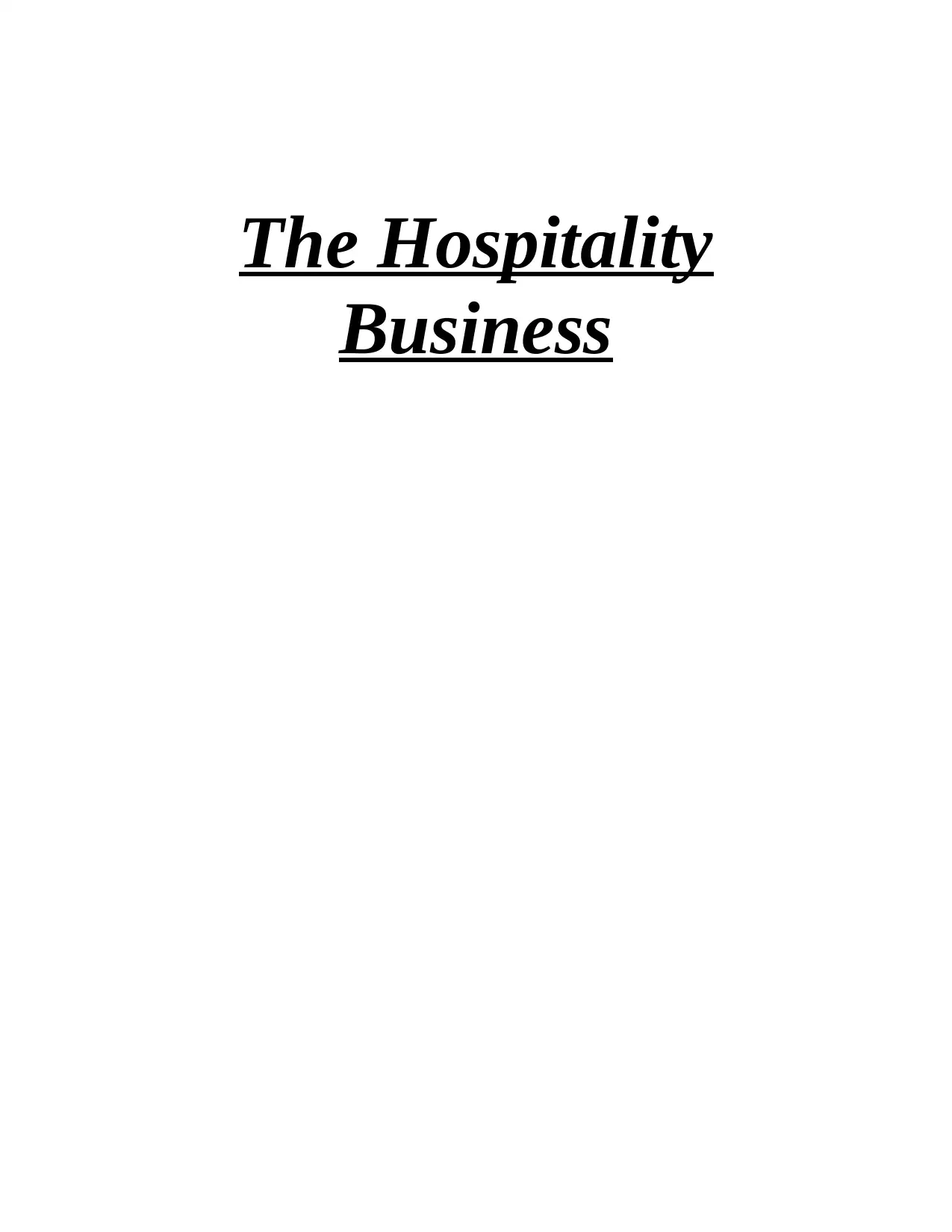
The Hospitality
Business
Business
Paraphrase This Document
Need a fresh take? Get an instant paraphrase of this document with our AI Paraphraser
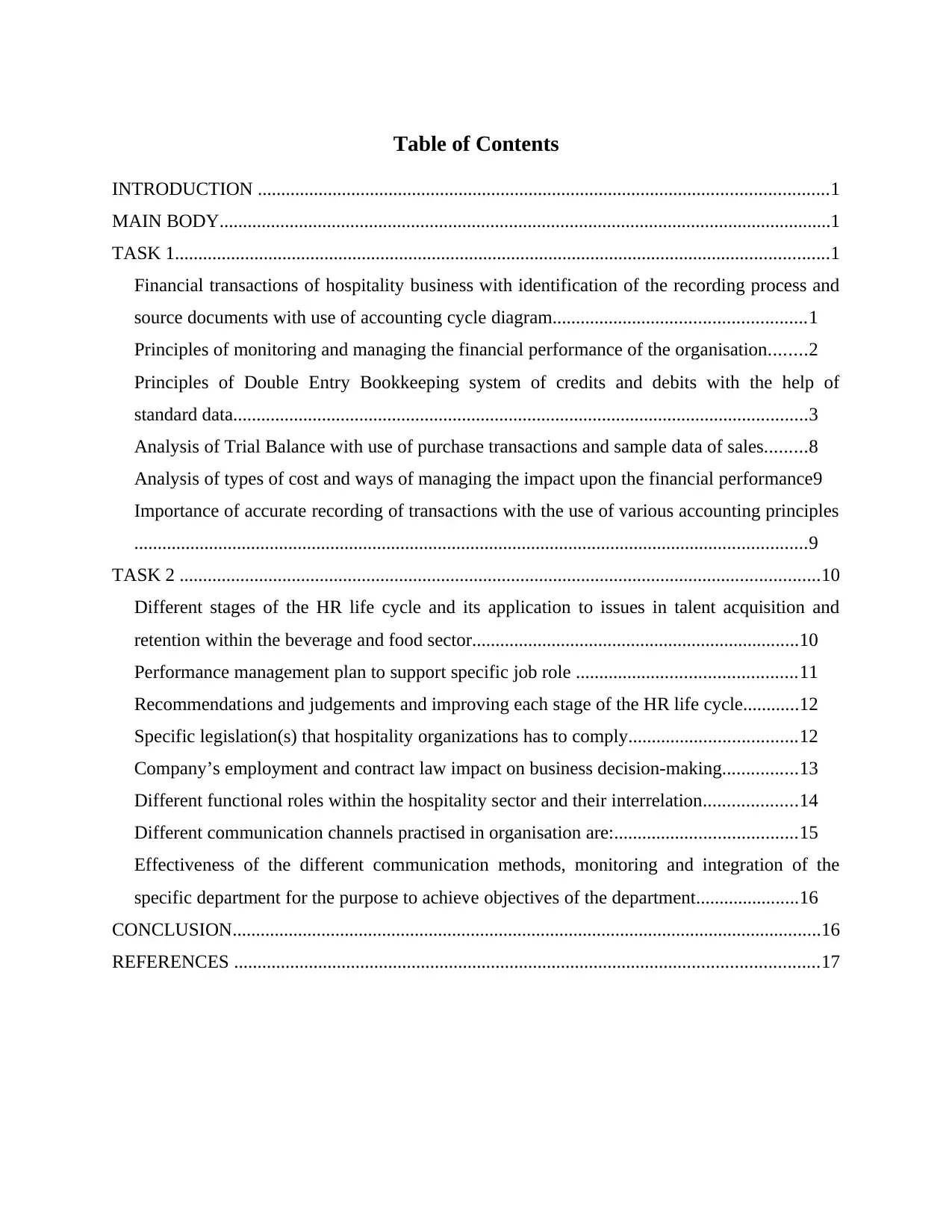
Table of Contents
INTRODUCTION ..........................................................................................................................1
MAIN BODY...................................................................................................................................1
TASK 1............................................................................................................................................1
Financial transactions of hospitality business with identification of the recording process and
source documents with use of accounting cycle diagram......................................................1
Principles of monitoring and managing the financial performance of the organisation........2
Principles of Double Entry Bookkeeping system of credits and debits with the help of
standard data...........................................................................................................................3
Analysis of Trial Balance with use of purchase transactions and sample data of sales.........8
Analysis of types of cost and ways of managing the impact upon the financial performance9
Importance of accurate recording of transactions with the use of various accounting principles
................................................................................................................................................9
TASK 2 .........................................................................................................................................10
Different stages of the HR life cycle and its application to issues in talent acquisition and
retention within the beverage and food sector......................................................................10
Performance management plan to support specific job role ...............................................11
Recommendations and judgements and improving each stage of the HR life cycle............12
Specific legislation(s) that hospitality organizations has to comply....................................12
Company’s employment and contract law impact on business decision-making................13
Different functional roles within the hospitality sector and their interrelation....................14
Different communication channels practised in organisation are:.......................................15
Effectiveness of the different communication methods, monitoring and integration of the
specific department for the purpose to achieve objectives of the department......................16
CONCLUSION..............................................................................................................................16
REFERENCES .............................................................................................................................17
INTRODUCTION ..........................................................................................................................1
MAIN BODY...................................................................................................................................1
TASK 1............................................................................................................................................1
Financial transactions of hospitality business with identification of the recording process and
source documents with use of accounting cycle diagram......................................................1
Principles of monitoring and managing the financial performance of the organisation........2
Principles of Double Entry Bookkeeping system of credits and debits with the help of
standard data...........................................................................................................................3
Analysis of Trial Balance with use of purchase transactions and sample data of sales.........8
Analysis of types of cost and ways of managing the impact upon the financial performance9
Importance of accurate recording of transactions with the use of various accounting principles
................................................................................................................................................9
TASK 2 .........................................................................................................................................10
Different stages of the HR life cycle and its application to issues in talent acquisition and
retention within the beverage and food sector......................................................................10
Performance management plan to support specific job role ...............................................11
Recommendations and judgements and improving each stage of the HR life cycle............12
Specific legislation(s) that hospitality organizations has to comply....................................12
Company’s employment and contract law impact on business decision-making................13
Different functional roles within the hospitality sector and their interrelation....................14
Different communication channels practised in organisation are:.......................................15
Effectiveness of the different communication methods, monitoring and integration of the
specific department for the purpose to achieve objectives of the department......................16
CONCLUSION..............................................................................................................................16
REFERENCES .............................................................................................................................17
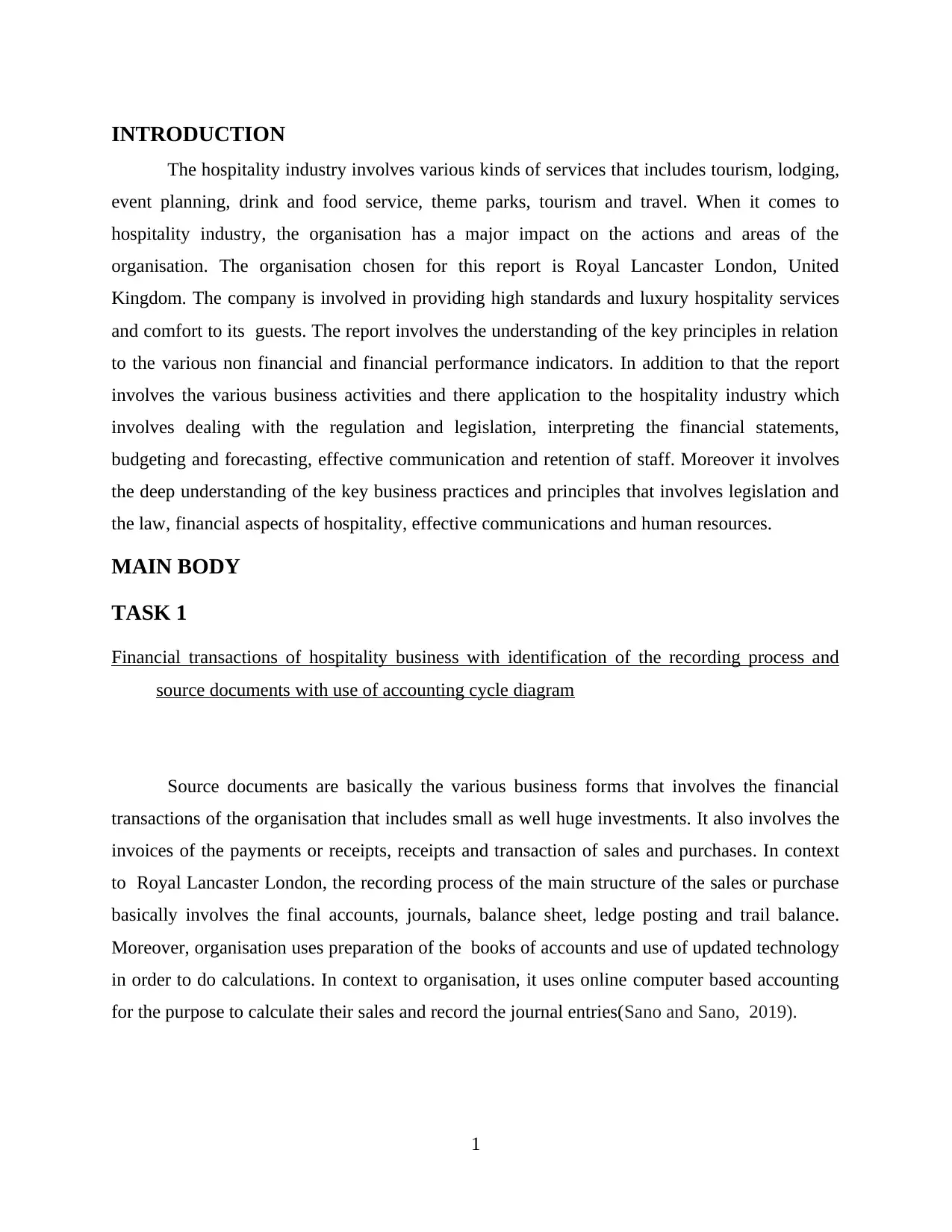
INTRODUCTION
The hospitality industry involves various kinds of services that includes tourism, lodging,
event planning, drink and food service, theme parks, tourism and travel. When it comes to
hospitality industry, the organisation has a major impact on the actions and areas of the
organisation. The organisation chosen for this report is Royal Lancaster London, United
Kingdom. The company is involved in providing high standards and luxury hospitality services
and comfort to its guests. The report involves the understanding of the key principles in relation
to the various non financial and financial performance indicators. In addition to that the report
involves the various business activities and there application to the hospitality industry which
involves dealing with the regulation and legislation, interpreting the financial statements,
budgeting and forecasting, effective communication and retention of staff. Moreover it involves
the deep understanding of the key business practices and principles that involves legislation and
the law, financial aspects of hospitality, effective communications and human resources.
MAIN BODY
TASK 1
Financial transactions of hospitality business with identification of the recording process and
source documents with use of accounting cycle diagram
Source documents are basically the various business forms that involves the financial
transactions of the organisation that includes small as well huge investments. It also involves the
invoices of the payments or receipts, receipts and transaction of sales and purchases. In context
to Royal Lancaster London, the recording process of the main structure of the sales or purchase
basically involves the final accounts, journals, balance sheet, ledge posting and trail balance.
Moreover, organisation uses preparation of the books of accounts and use of updated technology
in order to do calculations. In context to organisation, it uses online computer based accounting
for the purpose to calculate their sales and record the journal entries(Sano and Sano, 2019).
1
The hospitality industry involves various kinds of services that includes tourism, lodging,
event planning, drink and food service, theme parks, tourism and travel. When it comes to
hospitality industry, the organisation has a major impact on the actions and areas of the
organisation. The organisation chosen for this report is Royal Lancaster London, United
Kingdom. The company is involved in providing high standards and luxury hospitality services
and comfort to its guests. The report involves the understanding of the key principles in relation
to the various non financial and financial performance indicators. In addition to that the report
involves the various business activities and there application to the hospitality industry which
involves dealing with the regulation and legislation, interpreting the financial statements,
budgeting and forecasting, effective communication and retention of staff. Moreover it involves
the deep understanding of the key business practices and principles that involves legislation and
the law, financial aspects of hospitality, effective communications and human resources.
MAIN BODY
TASK 1
Financial transactions of hospitality business with identification of the recording process and
source documents with use of accounting cycle diagram
Source documents are basically the various business forms that involves the financial
transactions of the organisation that includes small as well huge investments. It also involves the
invoices of the payments or receipts, receipts and transaction of sales and purchases. In context
to Royal Lancaster London, the recording process of the main structure of the sales or purchase
basically involves the final accounts, journals, balance sheet, ledge posting and trail balance.
Moreover, organisation uses preparation of the books of accounts and use of updated technology
in order to do calculations. In context to organisation, it uses online computer based accounting
for the purpose to calculate their sales and record the journal entries(Sano and Sano, 2019).
1
⊘ This is a preview!⊘
Do you want full access?
Subscribe today to unlock all pages.

Trusted by 1+ million students worldwide
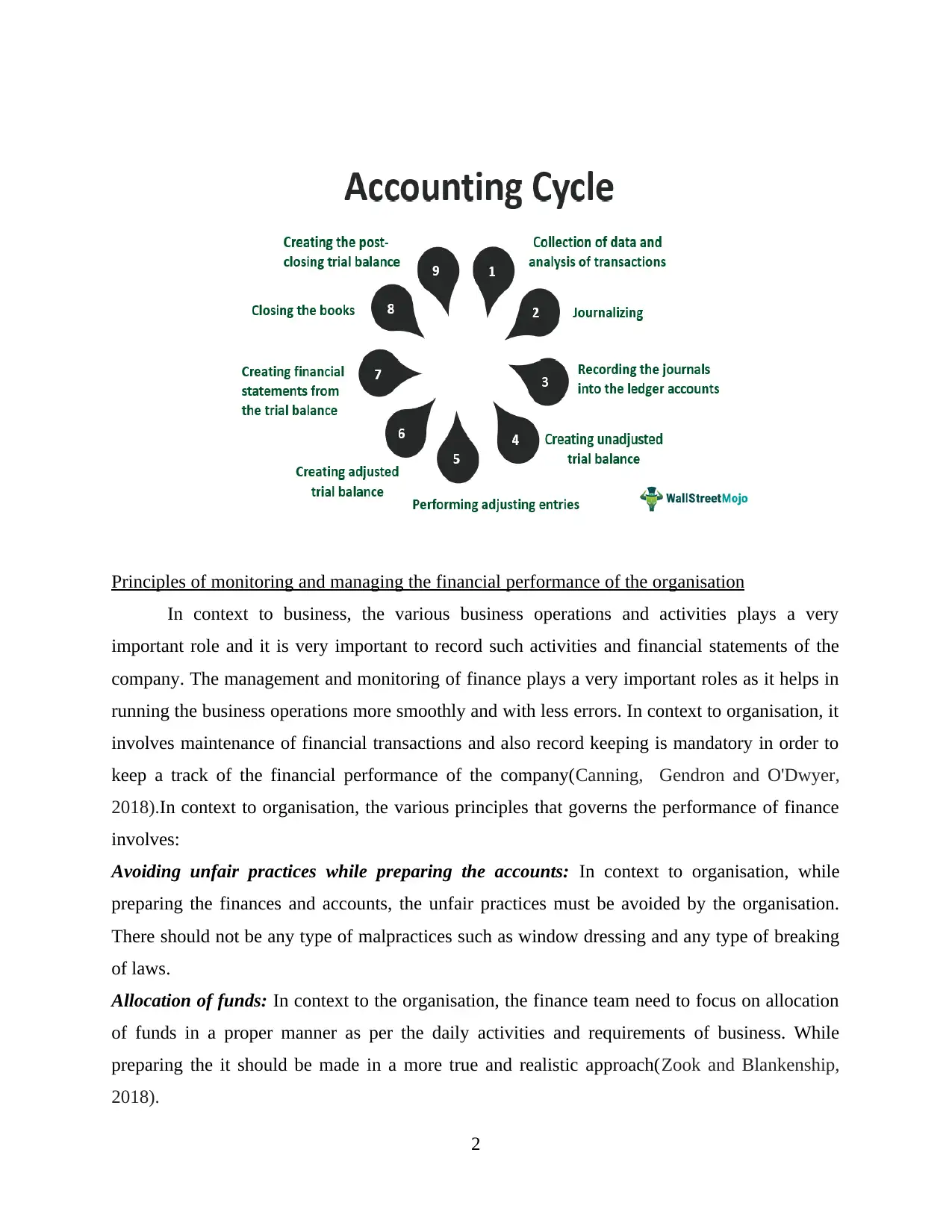
Principles of monitoring and managing the financial performance of the organisation
In context to business, the various business operations and activities plays a very
important role and it is very important to record such activities and financial statements of the
company. The management and monitoring of finance plays a very important roles as it helps in
running the business operations more smoothly and with less errors. In context to organisation, it
involves maintenance of financial transactions and also record keeping is mandatory in order to
keep a track of the financial performance of the company(Canning, Gendron and O'Dwyer,
2018).In context to organisation, the various principles that governs the performance of finance
involves:
Avoiding unfair practices while preparing the accounts: In context to organisation, while
preparing the finances and accounts, the unfair practices must be avoided by the organisation.
There should not be any type of malpractices such as window dressing and any type of breaking
of laws.
Allocation of funds: In context to the organisation, the finance team need to focus on allocation
of funds in a proper manner as per the daily activities and requirements of business. While
preparing the it should be made in a more true and realistic approach(Zook and Blankenship,
2018).
2
In context to business, the various business operations and activities plays a very
important role and it is very important to record such activities and financial statements of the
company. The management and monitoring of finance plays a very important roles as it helps in
running the business operations more smoothly and with less errors. In context to organisation, it
involves maintenance of financial transactions and also record keeping is mandatory in order to
keep a track of the financial performance of the company(Canning, Gendron and O'Dwyer,
2018).In context to organisation, the various principles that governs the performance of finance
involves:
Avoiding unfair practices while preparing the accounts: In context to organisation, while
preparing the finances and accounts, the unfair practices must be avoided by the organisation.
There should not be any type of malpractices such as window dressing and any type of breaking
of laws.
Allocation of funds: In context to the organisation, the finance team need to focus on allocation
of funds in a proper manner as per the daily activities and requirements of business. While
preparing the it should be made in a more true and realistic approach(Zook and Blankenship,
2018).
2
Paraphrase This Document
Need a fresh take? Get an instant paraphrase of this document with our AI Paraphraser
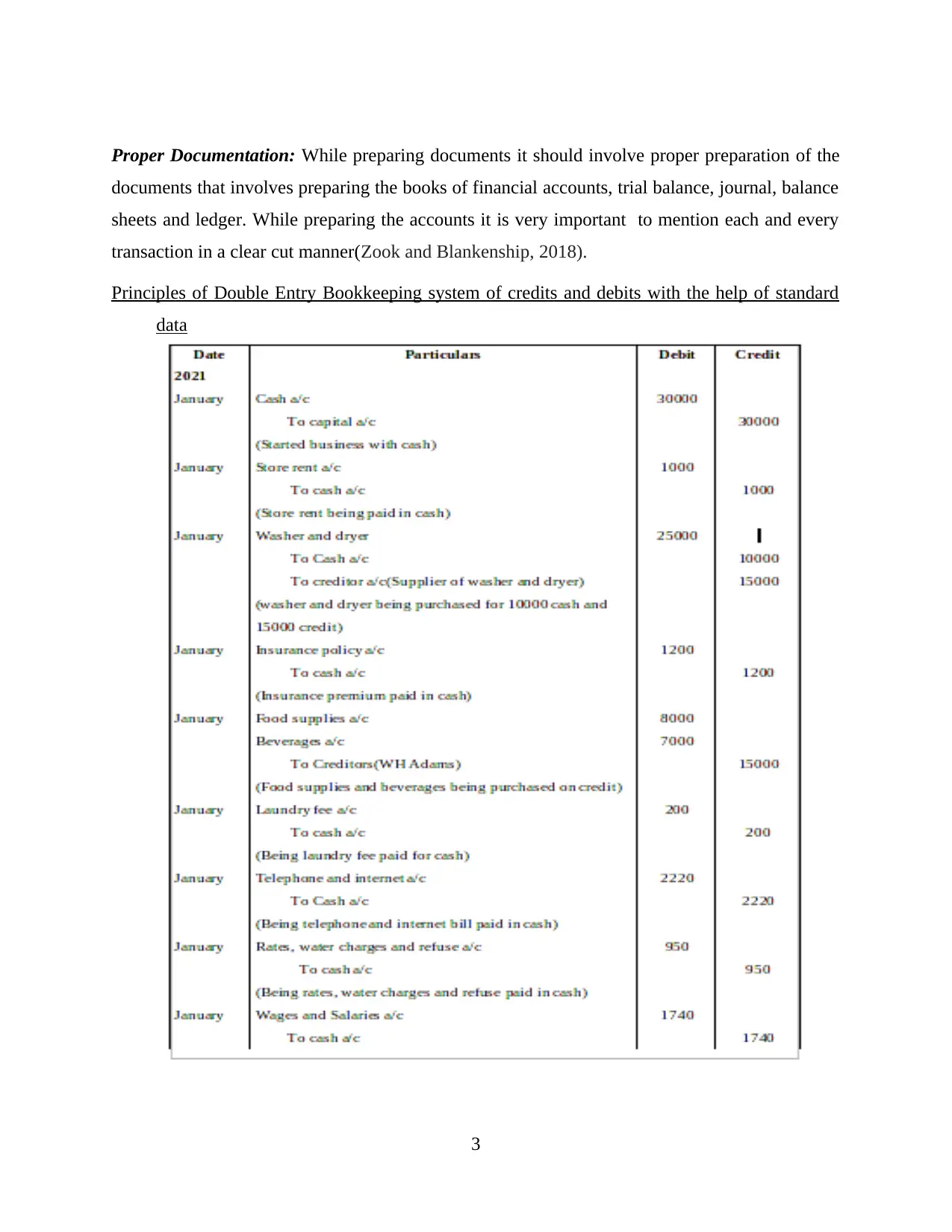
Proper Documentation: While preparing documents it should involve proper preparation of the
documents that involves preparing the books of financial accounts, trial balance, journal, balance
sheets and ledger. While preparing the accounts it is very important to mention each and every
transaction in a clear cut manner(Zook and Blankenship, 2018).
Principles of Double Entry Bookkeeping system of credits and debits with the help of standard
data
3
documents that involves preparing the books of financial accounts, trial balance, journal, balance
sheets and ledger. While preparing the accounts it is very important to mention each and every
transaction in a clear cut manner(Zook and Blankenship, 2018).
Principles of Double Entry Bookkeeping system of credits and debits with the help of standard
data
3
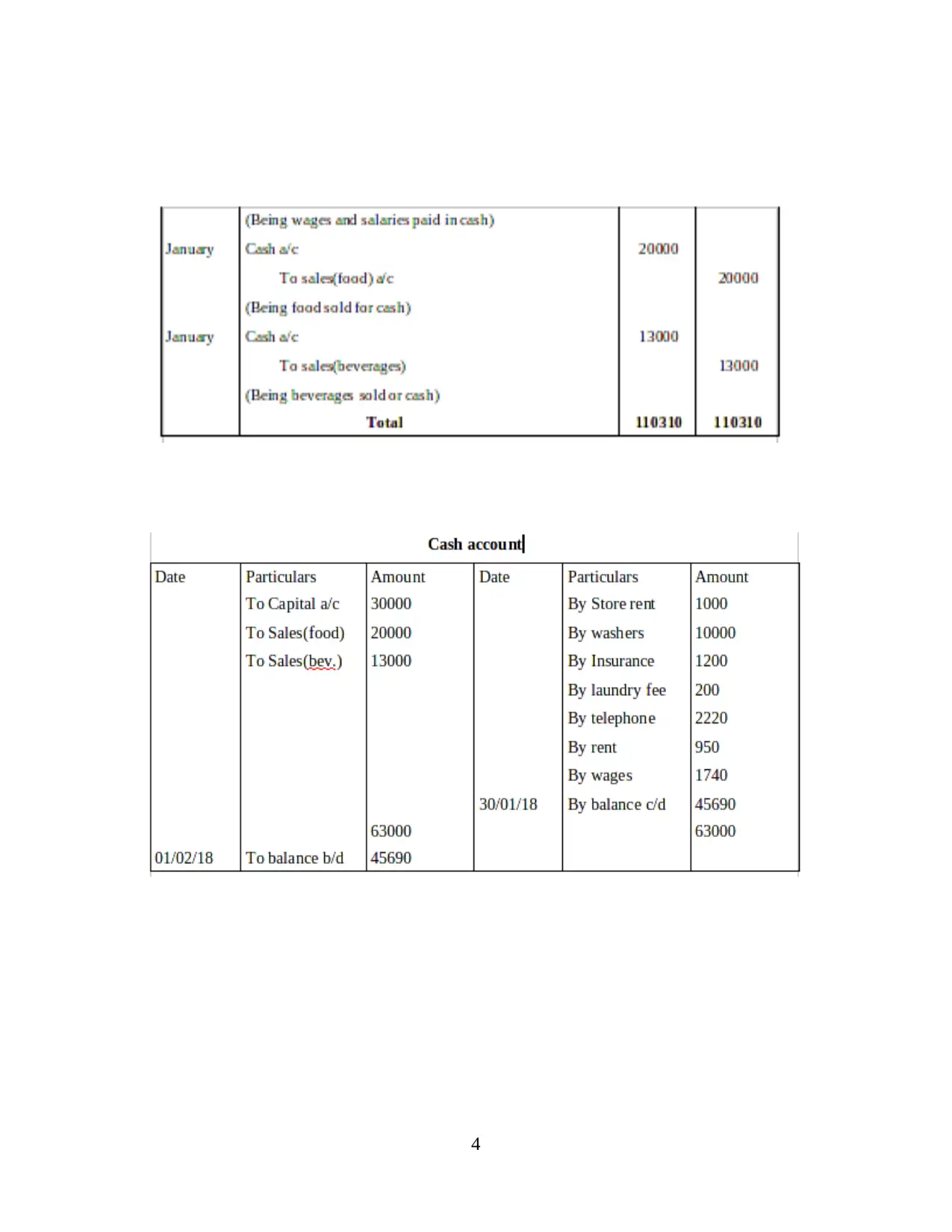
4
⊘ This is a preview!⊘
Do you want full access?
Subscribe today to unlock all pages.

Trusted by 1+ million students worldwide
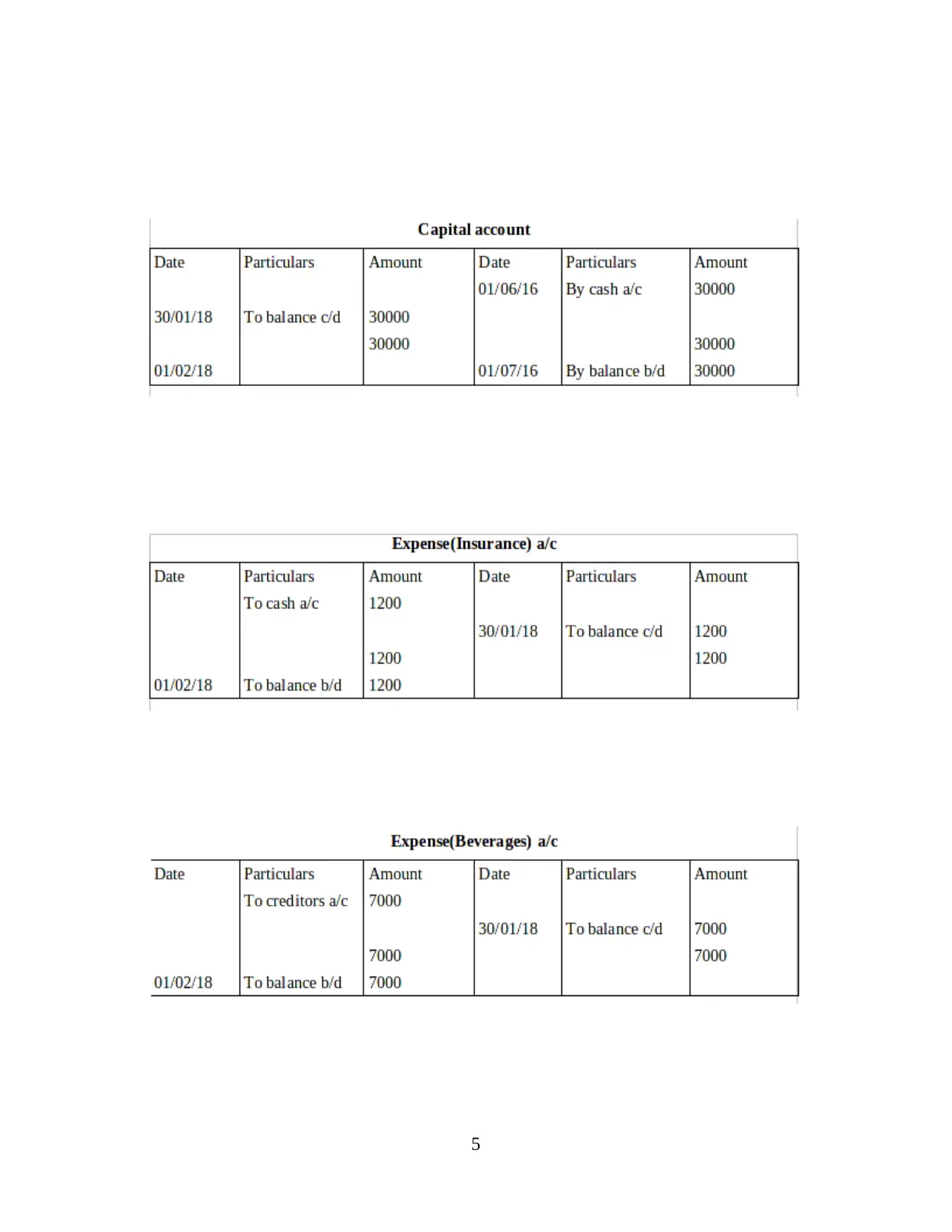
5
Paraphrase This Document
Need a fresh take? Get an instant paraphrase of this document with our AI Paraphraser
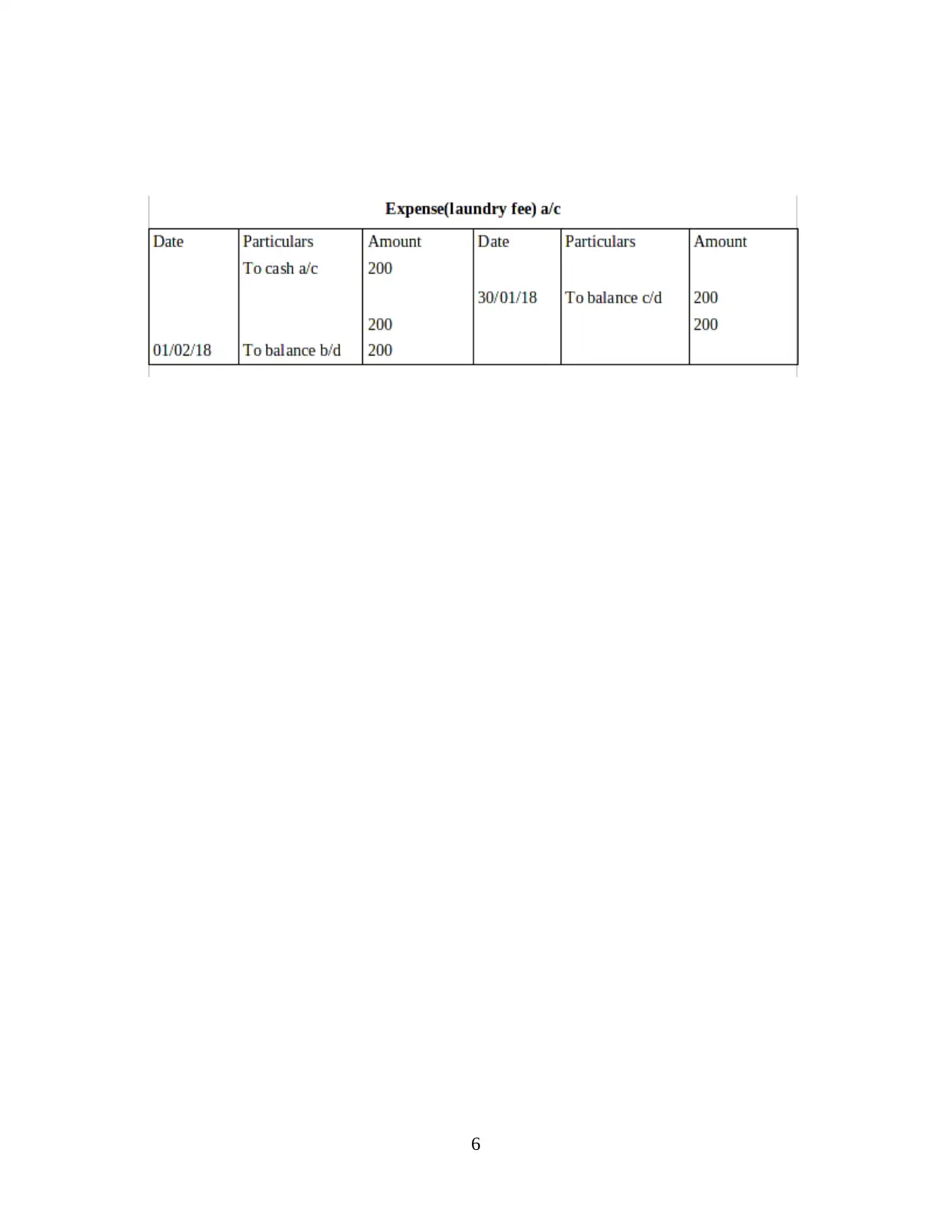
6
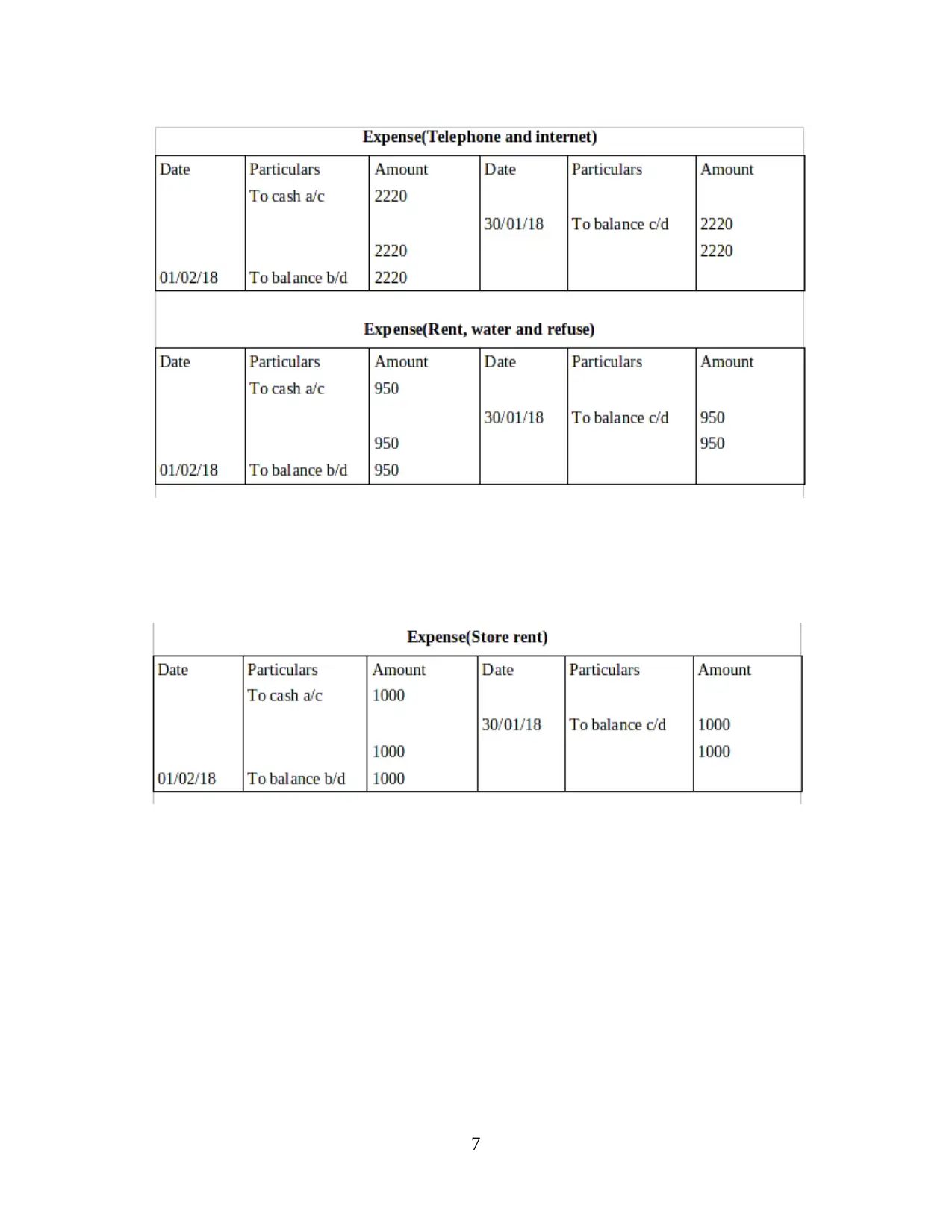
7
⊘ This is a preview!⊘
Do you want full access?
Subscribe today to unlock all pages.

Trusted by 1+ million students worldwide
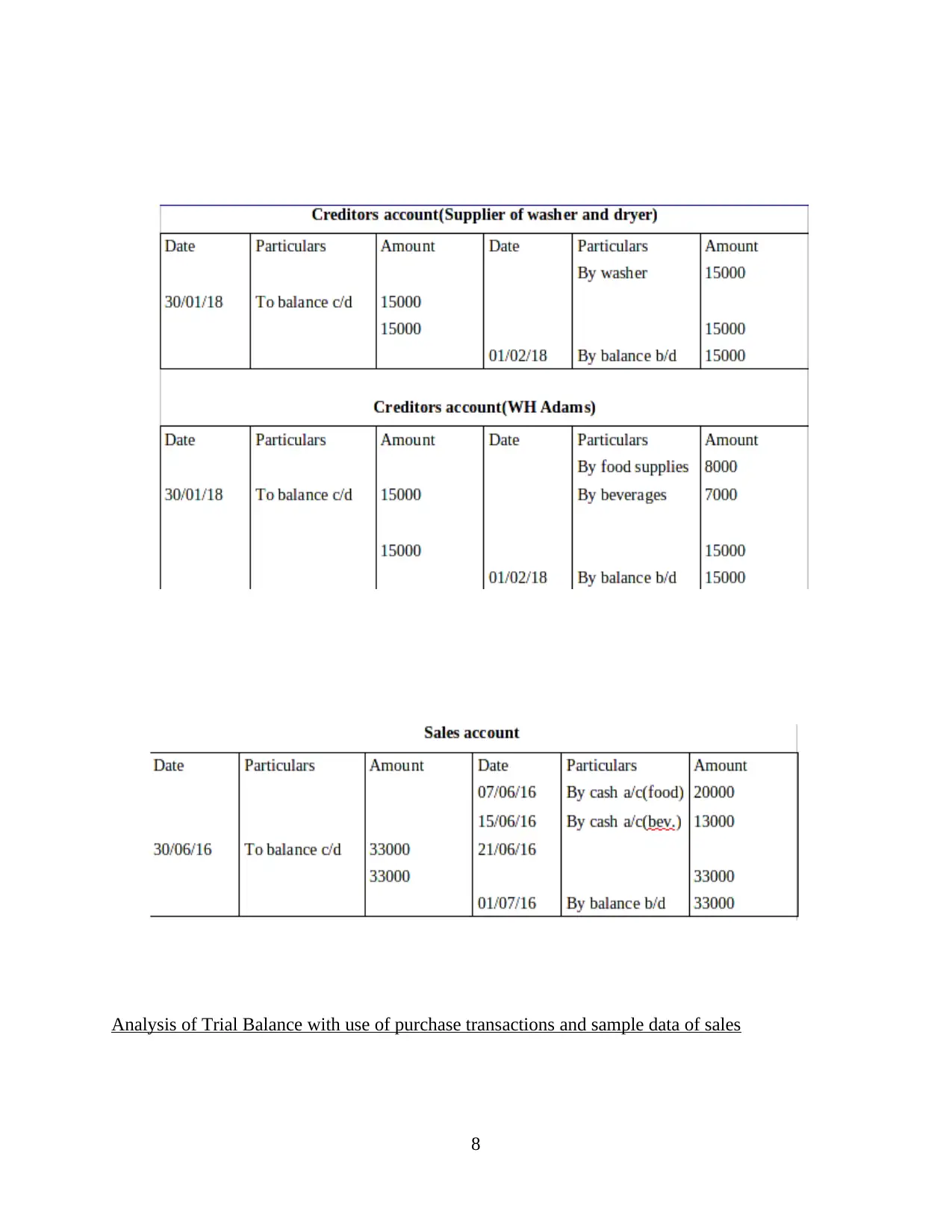
Analysis of Trial Balance with use of purchase transactions and sample data of sales
8
8
Paraphrase This Document
Need a fresh take? Get an instant paraphrase of this document with our AI Paraphraser
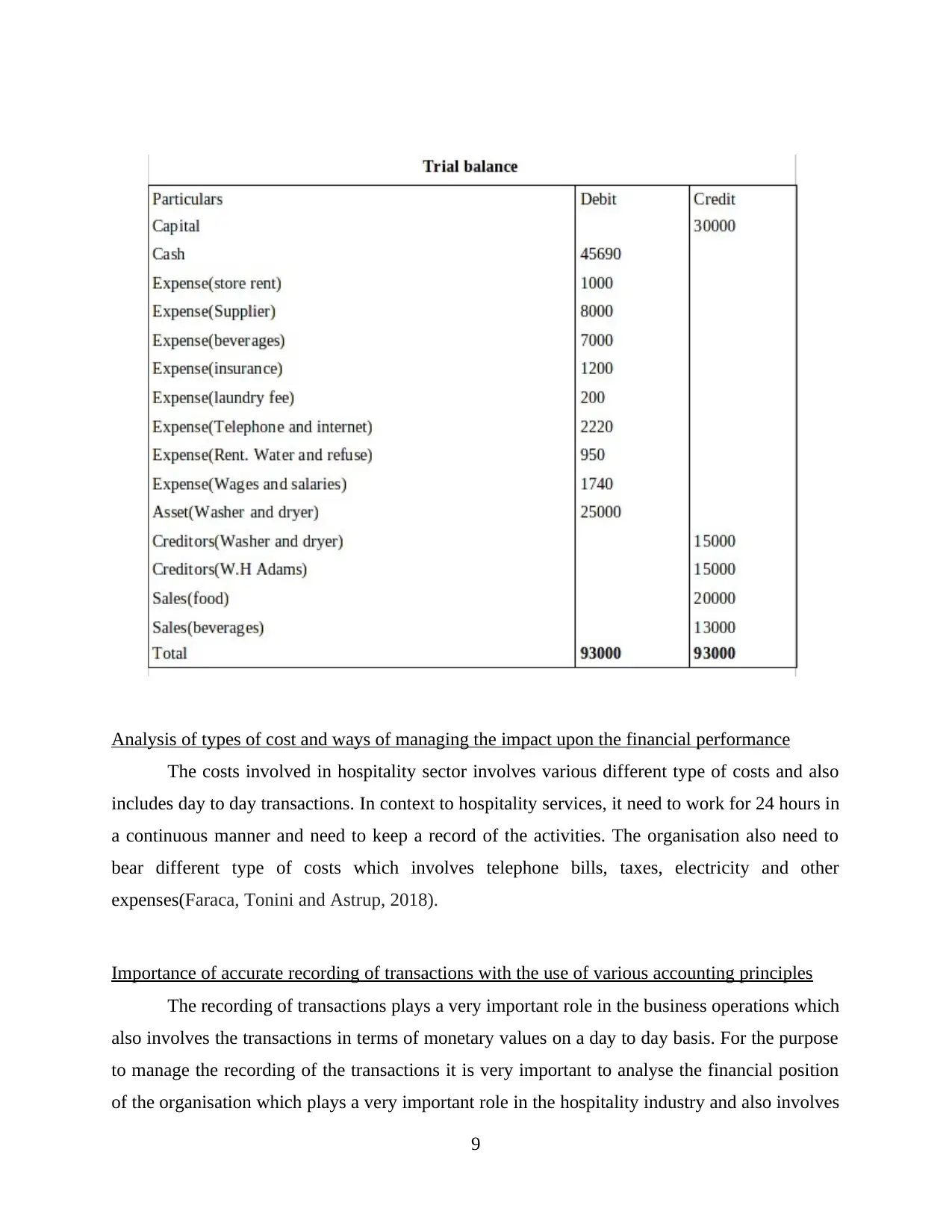
Analysis of types of cost and ways of managing the impact upon the financial performance
The costs involved in hospitality sector involves various different type of costs and also
includes day to day transactions. In context to hospitality services, it need to work for 24 hours in
a continuous manner and need to keep a record of the activities. The organisation also need to
bear different type of costs which involves telephone bills, taxes, electricity and other
expenses(Faraca, Tonini and Astrup, 2018).
Importance of accurate recording of transactions with the use of various accounting principles
The recording of transactions plays a very important role in the business operations which
also involves the transactions in terms of monetary values on a day to day basis. For the purpose
to manage the recording of the transactions it is very important to analyse the financial position
of the organisation which plays a very important role in the hospitality industry and also involves
9
The costs involved in hospitality sector involves various different type of costs and also
includes day to day transactions. In context to hospitality services, it need to work for 24 hours in
a continuous manner and need to keep a record of the activities. The organisation also need to
bear different type of costs which involves telephone bills, taxes, electricity and other
expenses(Faraca, Tonini and Astrup, 2018).
Importance of accurate recording of transactions with the use of various accounting principles
The recording of transactions plays a very important role in the business operations which
also involves the transactions in terms of monetary values on a day to day basis. For the purpose
to manage the recording of the transactions it is very important to analyse the financial position
of the organisation which plays a very important role in the hospitality industry and also involves
9
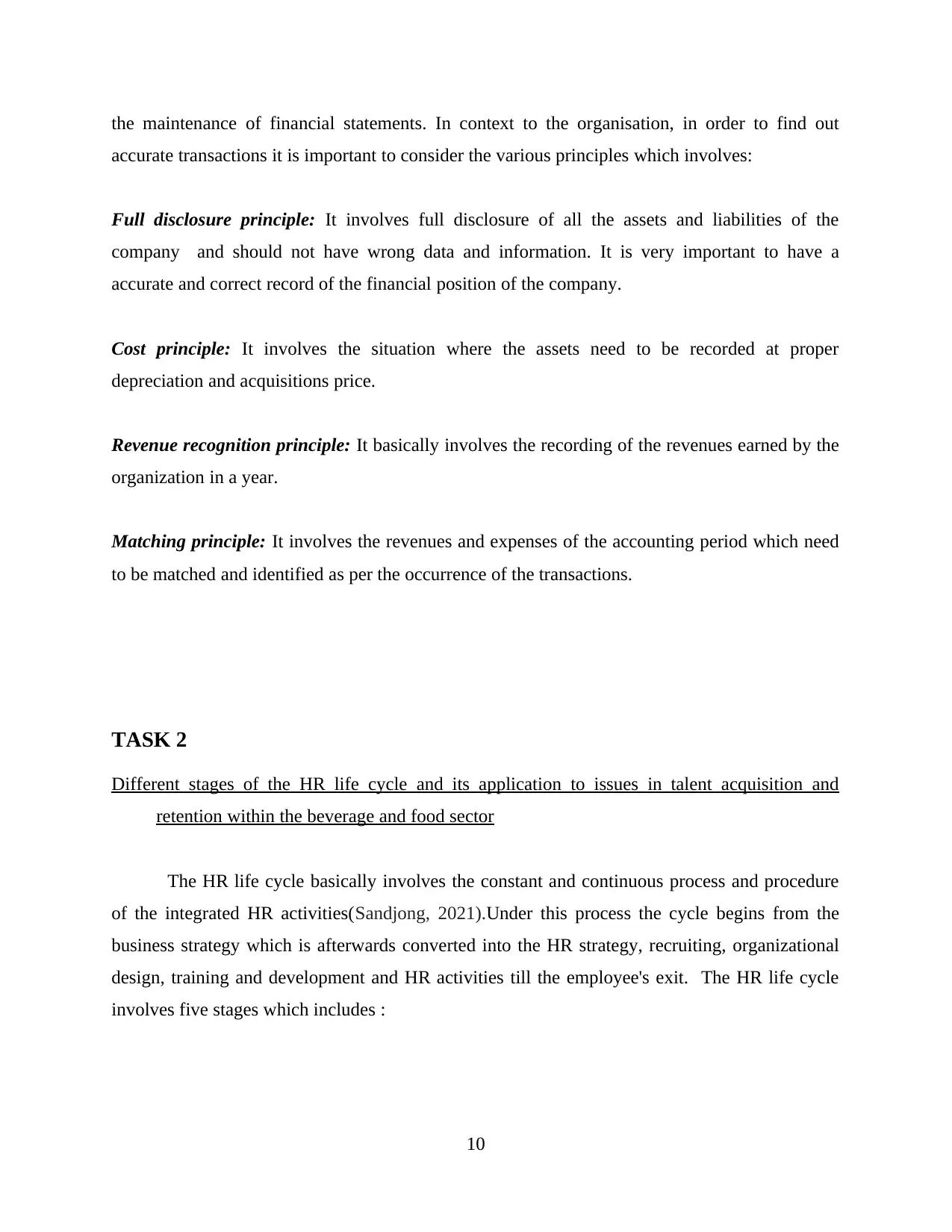
the maintenance of financial statements. In context to the organisation, in order to find out
accurate transactions it is important to consider the various principles which involves:
Full disclosure principle: It involves full disclosure of all the assets and liabilities of the
company and should not have wrong data and information. It is very important to have a
accurate and correct record of the financial position of the company.
Cost principle: It involves the situation where the assets need to be recorded at proper
depreciation and acquisitions price.
Revenue recognition principle: It basically involves the recording of the revenues earned by the
organization in a year.
Matching principle: It involves the revenues and expenses of the accounting period which need
to be matched and identified as per the occurrence of the transactions.
TASK 2
Different stages of the HR life cycle and its application to issues in talent acquisition and
retention within the beverage and food sector
The HR life cycle basically involves the constant and continuous process and procedure
of the integrated HR activities(Sandjong, 2021).Under this process the cycle begins from the
business strategy which is afterwards converted into the HR strategy, recruiting, organizational
design, training and development and HR activities till the employee's exit. The HR life cycle
involves five stages which includes :
10
accurate transactions it is important to consider the various principles which involves:
Full disclosure principle: It involves full disclosure of all the assets and liabilities of the
company and should not have wrong data and information. It is very important to have a
accurate and correct record of the financial position of the company.
Cost principle: It involves the situation where the assets need to be recorded at proper
depreciation and acquisitions price.
Revenue recognition principle: It basically involves the recording of the revenues earned by the
organization in a year.
Matching principle: It involves the revenues and expenses of the accounting period which need
to be matched and identified as per the occurrence of the transactions.
TASK 2
Different stages of the HR life cycle and its application to issues in talent acquisition and
retention within the beverage and food sector
The HR life cycle basically involves the constant and continuous process and procedure
of the integrated HR activities(Sandjong, 2021).Under this process the cycle begins from the
business strategy which is afterwards converted into the HR strategy, recruiting, organizational
design, training and development and HR activities till the employee's exit. The HR life cycle
involves five stages which includes :
10
⊘ This is a preview!⊘
Do you want full access?
Subscribe today to unlock all pages.

Trusted by 1+ million students worldwide
1 out of 20
Related Documents
Your All-in-One AI-Powered Toolkit for Academic Success.
+13062052269
info@desklib.com
Available 24*7 on WhatsApp / Email
![[object Object]](/_next/static/media/star-bottom.7253800d.svg)
Unlock your academic potential
Copyright © 2020–2026 A2Z Services. All Rights Reserved. Developed and managed by ZUCOL.




